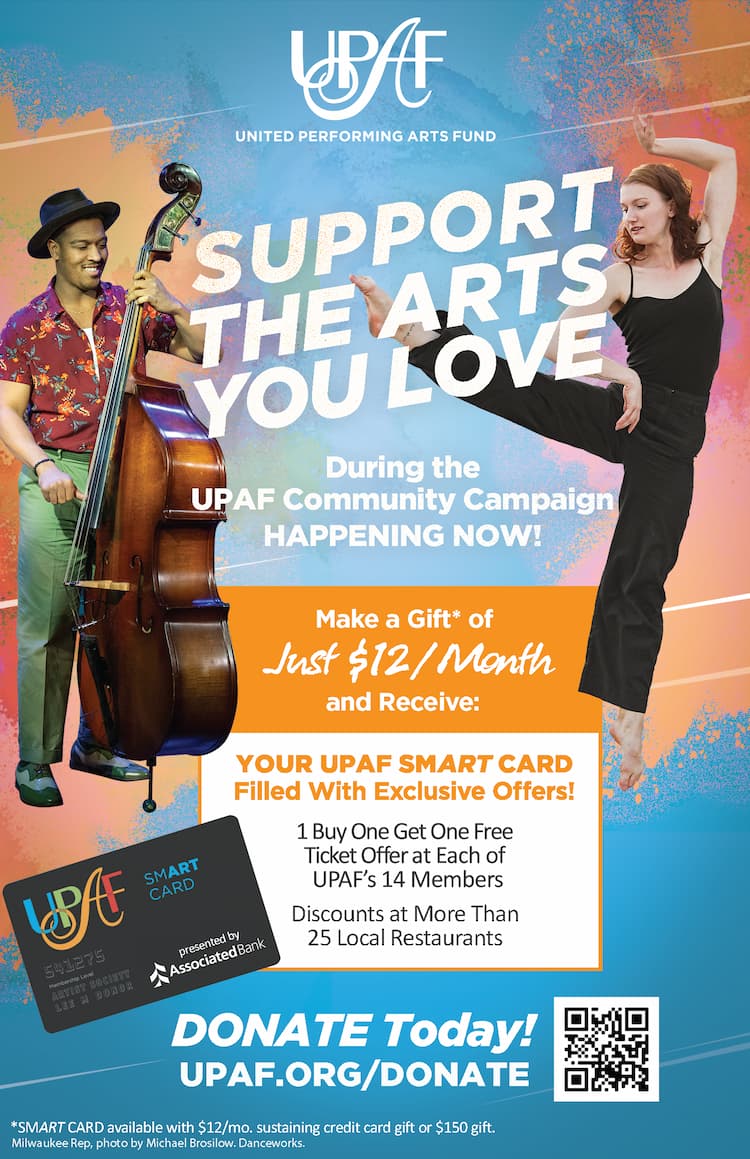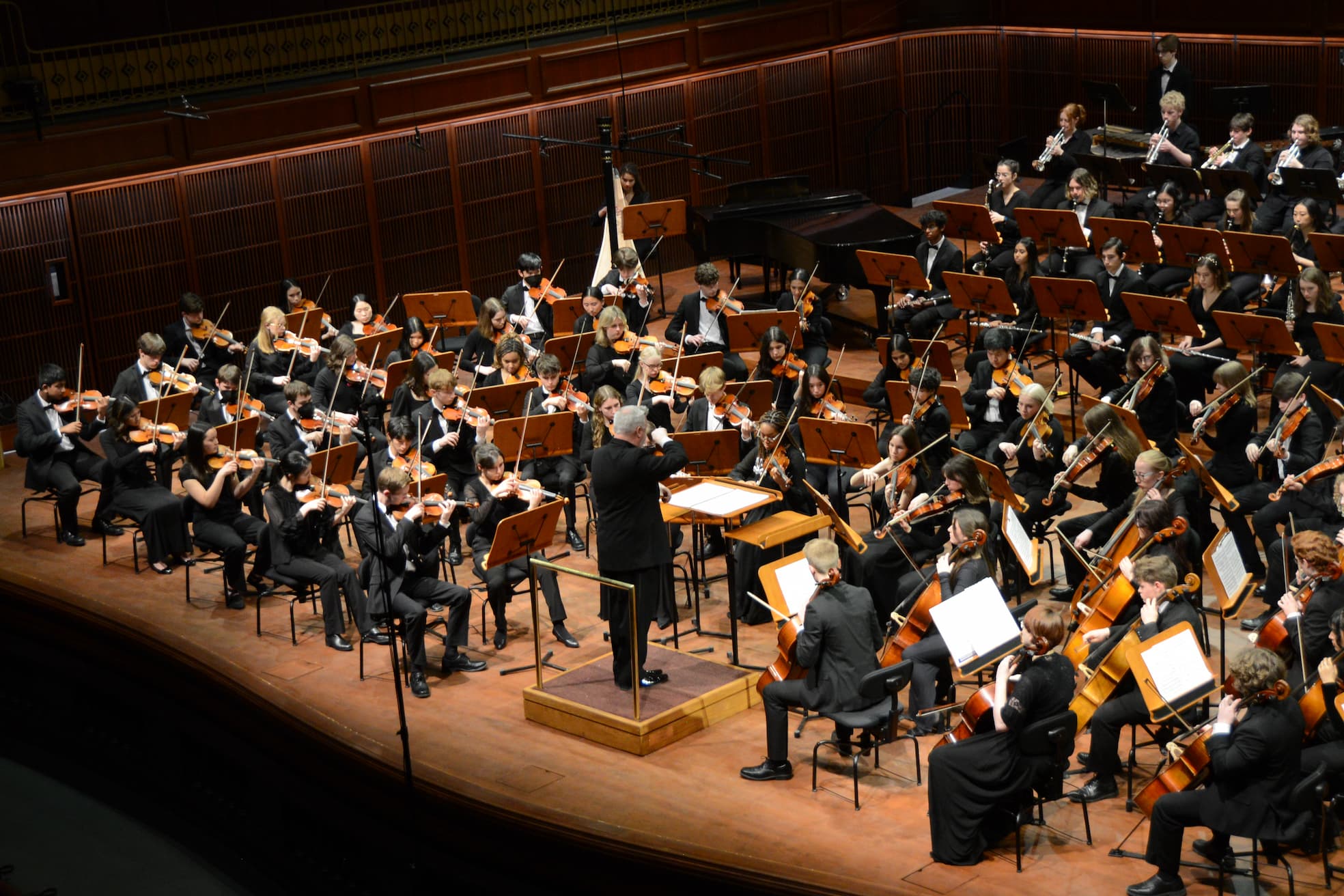
featuring the 2023 Belgium and the Netherlands Tour Orchestra
Saturday, July 8, 2023 | 3:00 pm
Sharon Lynne Wilson Center for the Arts
Good Afternoon!
Thank you so much for attending this concert by the Milwaukee Youth Symphony Orchestra. It is an honor to perform for you. The program we will present today and in Europe honors the traditional orchestral canon and reflects some of our country’s greatest composers. It is our hope that you will savor the special, vibrant music-making of our beloved youth orchestra. The musicians on stage are each wonderful young individuals who represent many backgrounds and, as young people do, pursue varied interests beyond music. Together, as an orchestra, they are a powerful and transcendent expression of what is good in the world. We believe that this American orchestra truly reflects the best qualities of our country.
We hope you enjoy our concert, and that the music we make and feelings we share today remain with you as fond memories of our time together. As we begin our journey, best wishes from your friends at the Milwaukee Youth Symphony Orchestra, and thank you for giving us this wonderful experience.
Carter Simmons, Artistic and Music Director
BEDŘICH SMETANA (1824-1884)
“Vltava” (“The Moldau”) from Ma Vlast (My Fatherland)
JOHANNES BRAHMS (1833-1897) / Orch. Bright Sheng
Intermezzo in A Major, Op. 118, No. 2, “Black Swan”
SAMUEL BARBER (1910-1981)
Essay No. 2 for Orchestra, Op. 17 (1942)
Intermission
PABLO de SARASATE (1844-1908)
Carmen Fantasy, Op. 25
Clark Snavely, violin
EDWARD “DUKE” ELLINGTON (1899-1974) / Orch. Ron Collier
“Lake” and “Giggling Rapids” from the Ballet The River
JOHN WILLIAMS (b. 1932)
Adventures on Earth
FIRST VIOLIN
FIRST VIOLIN
Clark Snavely, Concertmaster
Cecilia Koth, Concertmaster
Sofia Castanho-Bollinger, Concertmaster
Arisa Okamoto, Concertmaster
Isabella Nichols
Jasmine Storck
Max Letellier
Christianna Ebel
Hans Hemann
Caleb Endres
Brynn Nelson
Andrea Hanna
Kayami Jackson
Madeline Bingenheimer
Zindzi Frederick
Jenna Johnson
Valkyrie Ladd
Titus Veldhouse
SECOND VIOLIN
Ben Christiaansen
Jennifer Hong
Maia Cardew
Mark Stein
Aaron McGarry
Flynn O’Rear
Krish Vasudev
Alexander Chen
Yiwen Ma
Lucas Labeau
Brianna Cimoch
Ipek Yilmaz
Suraksha Kodgi
Brady Ahler
Michelle Drane
Ava Kelly
Aris Arvanetes
VIOLA
Sonya Wilhelm, Principal
Katelynn Lesinski
Charlotte Stevenson
Rem Leach
Lauryn Klinger
Alexandra Streit
Spencer Laga
Claire Fifarek
Haley Burns
Akilah Muhammad
CELLO
Noor Salameh, Principal
Gabrielle Peck
Gunnar Conine
Nathan Hansen
Rebecca DeBoer
Rylee Stelpflug
Ella Smullen
Carlos Recinos
Emma Pingitore
BASS
Braden Sulok, Principal
Isabella McGinley, Principal
Benjamin Levin
Ariana Smith
HARP
Maydine Bellot
PIANO and
CELESTE
Lucas LaBeau
FLUTE
Sophie Gerew
Shreya Girish
Zackary Muñoz
Scotland Nicholson
Abhinay Reddy
Jane Tretheway
PICCOLO
Zackary Muñoz
Abhinay Reddy
OBOE
Abby Debbink
Lydia Morency
Elisabeth Young
ENGLISH HORN
Elisabeth Young
CLARINET
Lilly Beane
Autumn Lee
Rebecca Redlich
Aaron Srok
Sydney Stanford
BASS CLARINET
Lilly Beane
BASSOON
Gavin Hansen
Presley Hansen
Andrea Wisniewski
HORN
Shaurya Bansal
Mina Gates
Eli Hoffmann
Meera Rao
Elijah Samuelson
Peter Weyers
Brooks Wisniewski
TRUMPET
Milo Ascher
Emmah Bagin
Sarah Downes
Oscar Endres
Hudson Simmons
TROMBONE
Gabriel Coutinho
Erich Haefer
Grace O’Connell
Josie Sagan
TUBA
Ryan Nelson
TIMPANI and PERCUSSION
Logan DeWaide
Daniel Grady
Kyler Katanik
Isaac Visser
Bedrich Smetana
b. March 2, 1824; Leitomischl, Bohemia; d. May 12, 1884; Prague
“Vltava” (“The Moldau”), from the Symphonic Cycle Ma Vlast (“My Fatherland”)
The father of Czech identity in art music, Smetana spent the first thirty-odd years of his life speaking only the language of his country’s German dominators. Having shown exceptional talent as a child, Smetana became a formidable piano soloist; at age 21, he confided to his diary: “By the grace of God and with his help I shall one day be a Liszt in technique and a Mozart in composition.” After some successful years in Sweden, he returned to a homeland that was generally apathetic to his goal of creating a national music. Undaunted, he devoted himself to learning the Czech language and to creating a musical celebration of Czech nationalism, a goal perhaps most successfully reached with his opera, The Bartered Bride (1866).
On his way to these achievements, Smetana struggled for years as a young composer and piano virtuoso. Musically impressed by meeting Berlioz and Robert and Clara Schumann, his early maturity was decidedly influenced by a friendship with Franz Liszt, which began around 1840. After years of correspondence, Liszt sent the Czech composer some newly published scores of his symphonic poems; within a year, Smetana visited the famed pianist and composer in Weimar (September 1857). This contact with Liszt convinced Smetana that the future of music was involved with the expression of literary subjects through the radical new form of the symphonic poem.
It was in this realm that Smetana created his crowning symphonic achievement, a cycle of six related symphonic poems under the collective title of Ma Vlast (“My Fatherland,” or “My Country”). Calling it “the most heroic instrumental work since Beethoven,” John Clapham points out that they “extended the scope and purpose of the symphonic poem beyond the aims of any later composer.”
The second work of this set, “Vltava” (“The Moldau”) reflects the beauty of the Czech landscape. Of this work, composed November 20 - December 8, 1874 (and orchestrated in 1880), the composer wrote:
Two springs pour forth their streams in the shade of the Bohemian forest, the one warm and gushing, the other cold and tranquil. Their waves, joyfully flowing over their rocky beds, unite and sparkle in the morning sun. The forest brook, rushing on, becomes the River Moldau, which, with its waters speeding through Bohemia’s valleys, grows into a mighty stream. It flows through dense woods in which are heard the joyous sounds of the hunt, the notes of the hunter’s horn sounding ever nearer and nearer. It flows through emerald meadows and lowlands where a wedding feast is being celebrated with song and dance. At night in its shining waves the wood and water nymphs hold their revels, and in these waves are reflected many a fortress and castle, witnesses of bygone splendor of chivalry and the vanished martial fame of days that are no more. At the Rapids of St. John the stream speeds on, winding its way through cataracts and hewing the path for its foaming waters through the rocky chasm into the broad river-bed in which it flows on in majestic calm toward Prague, welcomed by time-honored Vysehrad, to disappear from the poet’s gaze in the far distance.
Johannes Brahms
b. May 7, 1833; Hamburg; d. April 3, 1897; Vienna
Intermezzo in A Major, Opus 118, No. 2 (“Black Swan”)
In 1892, Brahms wrote six piano pieces which he grouped together as Opus 118; this, his penultimate set of piano pieces, was first performed in London in January, 1894. Brahms generally applied the title Intermezzo to works of a smaller size and more neutral character. A notable exception to this is the second work of the group, the A-major Intermezzo, a more sizable composition with an unusually extensive amount of contrapuntal writing for a character piece. As always, Brahms disregards Lisztian virtuosity for its own sake, preferring instead to focus on poetic expressions.
In 2006, the Chinese-American composer, conductor, and pianist Bright Sheng was commissioned to contribute a work for the Seattle Symphony’s project “Hear music—the Sound of Starbucks.” He responded with an engaging orchestration of this Brahms Intermezzo, which Sheng entitled Black Swan. Born in Shanghai in 1955, Sheng has been living in the United States since 1982 and is a faculty member at the University of Michigan. In celebration of Gerard Schwarz’s twenty-six years as Music Director of the Seattle Symphony Orchestra in 2010, Sheng added an orchestration of Opus 118, No. 1, to make a two-part work which he entitled Prelude and Black Swan.
Samuel Barber
b. March 9, 1910; West Chester, PA; d. January 23, 1981; New York City
Essay No. 2 for Orchestra, Opus 17
If I’m writing for words, then I immerse myself in those words, and I let the music flow out of them. When I write an abstract piano sonata or concerto, I write what I feel. I’m not a self-conscious composer. One of the physical nurturing components that make my music sound as it does is that I live mostly in the country. I have always believed that I need a circumference of silence. As to what happens when I compose, I really haven’t the faintest idea.
Samuel Barber (1971)
A man whose personal economy and clarity expressed itself in lyrically romantic music, Barber first developed the idea of creating a concise orchestral tone poem entitled Essay with his Opus 12 of 1937. He returned to this mode of expression with the present work of 1941, and again in 1978 with a Third Essay, Op. 47; each new essay became larger in instrumentation and duration.
The original Essay for Orchestra was introduced by Arturo Toscanini and the NBC Symphony Orchestra on a broadcast of November 5, 1938. Its success prompted Bruno Walter, who was also desiring to perform some new American music on his programs with the New York Philharmonic, to ask the rising young composer for a similar composition. Just before being inducted into the U.S. Army, Barber responded with the Essay No. 2. Walter and the Philharmonic premiereed it on April 16, 1942.
In a manner reminiscent of the literary form whose name it bears, the Second Essay develops from the expressive solo flute melody at its outset. A subsequent melody is advanced by violas and a third theme by the brass. Solo clarinet initiates a fugato subject derived from the first theme. Further melodic transformations reveal themselves as the music develops through varied textures on its way to a triumphal closing chorale.
Pablo Sarasate
b. March 10, 1844; Pamplona, Spain; d. September 20, 1908; Biarritz
Carmen Fantasy, Op 25
A staple of the Romantic virtuoso’s repertoire was pyrotechnical variations on operatic themes well-known by the public. There are countless works in this genre for all instruments, but the ones which retain special validity are those which are based on operas still in the modern repertory. Certainly, one of the best examples of this type of work is Sarasate’s brilliant Carmen Fantasy, based on themes from Bizet’s beloved opera of 1875.
The foremost Spanish violinist of his day, Sarasate began study at the Paris Conservatory with Alard at the age of twelve. A prize student and promising composer, he embarked on a concert career which eventually carried him throughout the world. The Stradivarius which Sarasate played for the majority of his life, was given to him by Queen Isabella of Spain when he was still a lad. Sarasate was such a dominant figure that several contemporary composers dedicated works to him; notably those of Saint- Saëns (Concerto No. 1 and Symphonie Espagnole) and Bruch (Concerto No. 2 and the Scottish Fantasy).
Of Sarasate, Gustave Chouquet writes that his “distinguishing characteristics were not so much fire, force and passion, though of these he had an ample store, as purity of style, charm, brightness of tone, flexibility and extraordinary facility. He generally avoided the music of Paganini and his followers, partly for want of taste for it and partly because of the long stretches required, his hand being very small. He was long remembered for his rendering of the solos he wrote for himself and played so exquisitely, giving the spirit of Spanish dance translated into terms of the violin virtuoso.”
Edward Kennedy “Duke” Ellington
b. April 29, 1899; Washington, D.C.; d. May 24; 1974; New York City
“Lake” and “Giggling Rapids,” from the Ballet The River
Often acclaimed as the most important composer in jazz history, Ellington gained the affectionate nickname of “Duke” because of his strikingly dignified manner. The son of pianists, Ellington began the study of piano at the age of seven. Developing from his early ragtime influences, he gathered a band of fine musicians around him and, by the late-1920s shared with Louis Armstrong the leadership of the jazz world from the throne room of the Cotton Club in Harlem. Not content to merely repeat the formulas which led to his success, Ellington continued to refine and expand his concepts. From the symphonic gestures contained in Black, Brown and Beige, a five-movement suite for his own band, he went on to write musical comedies, film scores (Anatomy of a Murder, 1959), and, in the last decade of his life, three large-scale liturgical works.
After considering the project for several years, Ellington composed The River in 1970. Written in collaboration with choreographer Alvin Ailey, it was first presented by the American Ballet Theatre at New York’s Lincoln Center on June 25, 1970. At that time, the music was introduced as “Seven Dances from a Work in Progress Entitled The River.” Five days after that premiere the ballet took the somewhat more extensive form of: “Spring [Prologue],” “Spring Run,” Meander,” “Giggling Rapids,” “Falls,” “Vortex,” “Lake,” “Mainstream (Riba),” “Two Cities,” “The Sea (Mother),” and “Spring [Epilogue].” Orchestrated by Ron Collier, this music also exists as a seven-movement Suite from The River. An allegory of human life from birth to death, this imaginary voyage down an African river bears the composer’s preface: “…of birth…of the well-spring of life…of reaffirmation…of the heavenly anticipation of rebirth…”
After the lush scenic landscape of “The Lake,” one of the best-known excerpts from this music is the rapid jazz waltz “Giggling Rapids.” After a piano introduction performed by Lucas LaBeau, the winds advance this jazzy idea, punctuated by brass figures and warm string passages.
John T. Williams
b. February 8, 1932; Flushing, NY
Adventures on Earth
Among the foremost contemporary composers of symphonic film scores is the redoubtable John Williams, a man who simultaneously produces concert works and exciting movie music. Drawing upon heroic elements within the modern Romantic tradition, Williams combines contemporary techniques with time-honored musical gestures as he creates his particularly effective film scores, including the Superman series, Raiders of the Lost Ark, the Star Wars series and his evocative music for the extraterrestrial visitations of Close Encounters of the Third Kind and E.T. of 1982.
Particularly stirring and uplifting was the music that Williams created for E.T. (The Extra-Terrestrial). It gained legendary status in Hollywood when it became known that Steven Spielberg elected to cut the film to fit the natural flow of Williams’s music. About twenty years after the film’s creation, Williams decided to create a concise tone poem, entitled Adventures on Earth. Utilizing music from the memorable bicycle chase and final scenes, the work employs themes and motives associated with adventure, flying and wonder.
Donations to MYSO are the crucial funding source that allow us to nurture, challenge, and inspire young minds, profoundly changing lives and our community for the better. We are tremendously grateful for these important gifts.
This list recognizes gifts of $250 or more that were received from July 1, 2022, through April 13, 2023. We encourage you to call Emma Kunz, Philanthropy Operations Manager, at 414-267-2943, with questions or corrections—or to learn how to make a much-appreciated gift to MYSO.
Energico ($350,000 - $500,000)
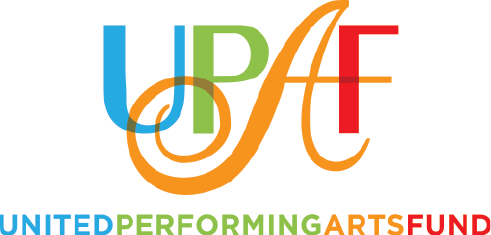 United Performing Arts Fund
United Performing Arts Fund
Appassionato ($100,000 - $349,999)
The Burke Foundation
Maestoso ($20,000 - $99,999)
Bader Philanthropies, Inc.
The Gannett Foundation
Greater Milwaukee Foundation
Harri Hoffmann Family Foundation
Lynde and Harry Bradley Foundation
MPS Recreation Partnership for the Arts and Humanities

The Richard and Ethel Herzfeld Foundation
Con Fuoco ($10,000 - $19,999)
Adelaide F. Banaszynski Memorial Fund
Anonymous (3)
Laura and Mike Arnow
Francie Luke Silverman Foundation
The Frank and Lucille Puncer Foundation
Tim and Sue Frautschi
Greater Milwaukee Foundation - Luedke-Smith Fund
Johnson Controls
Angela Johnston
Krause Family Foundation
Elaine and Gerry Mainman
Melitta S. and Joan M. Pick Charitable Trust
Erik and Carol Moeser
Scott and Lynn Molitor
Peck Foundation, Milwaukee LTD
Ralph Evinrude Foundation Inc.
Tides Foundation
We Energies Foundation
William N. and Janice V. Godfrey Family Foundation
Wisconsin Arts Board with funds from the National Endowment for the Arts
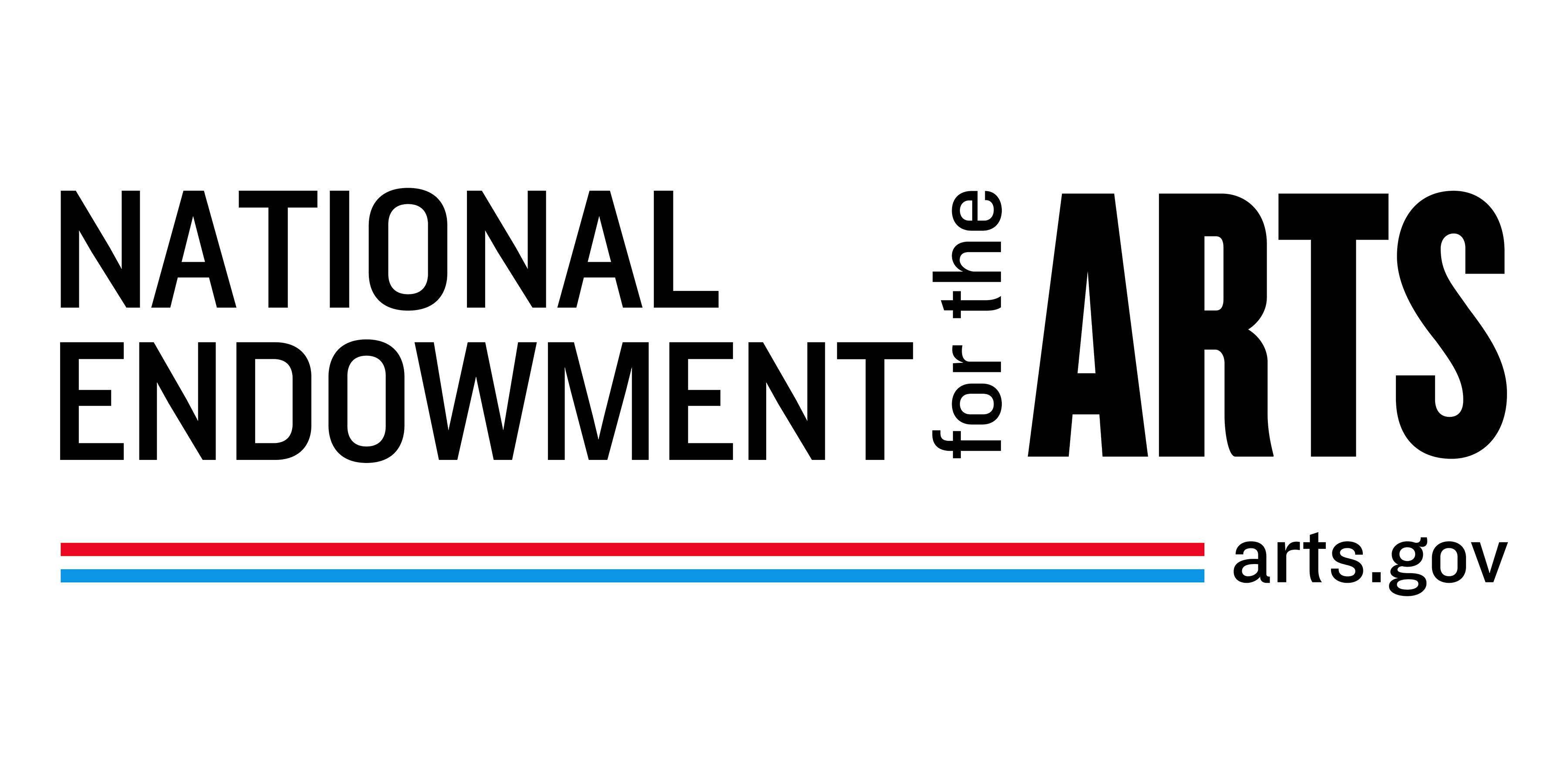
Vivace ($5,000 to $9,999)
529Innovations
Anon Charitable Trust
Anonymous (2)
Ken and Kris Best
Brico Fund
Bobbi and Jim Caraway
Dorothy Inbusch Foundation
Jeff Edelstein, MD
Linda Edelstein
George and Jill Fahr
Michael and Jennifer Hansen
Jerome and Dorothy Holz Family Foundation
Madeleine and David Lubar
Maihaugen Foundation
Manpower Group Foundation Inc.
Milwaukee Arts Board & Wisconsin Arts Board, with funds from the State of Wisconsin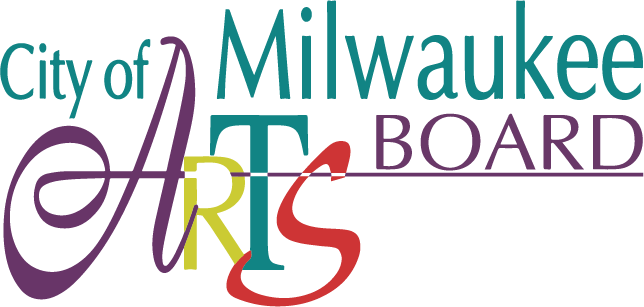

Milwaukee County Cultural Artistic & Musical Programming Advisory Council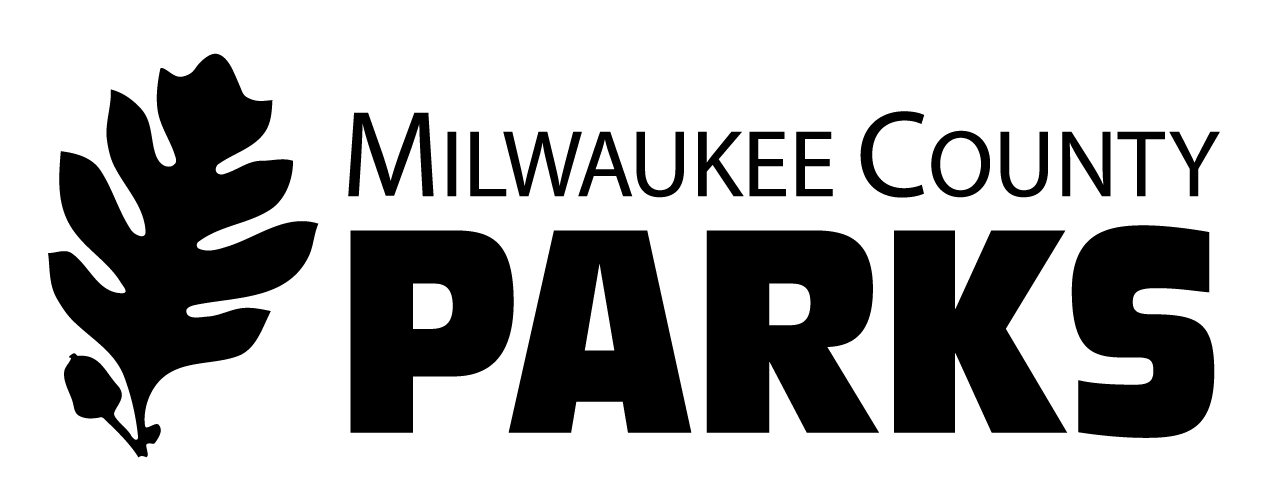
Lacey Sadoff
Michael Schmitz
PNC Foundation
Zilber Family Foundation
Animato ($2,500 - $4,999)
Anonymous (2)
Brian and Laurel Bear
John and Marilyn Breidster
James and Diane Brown
Anthony and Andrea Bryant
Richard Buchband and Betsy Rosenblum
Croen Foundation, Inc.
Andrew DeBoer
Thomas and Deborah Degnan
Dal and Jackie Drummer
Elmbrook Rotary Foundation
Ernest and Sally Micek Family Foundation
Steve and Nancy Fisher
Greater Milwaukee Foundation - Judith A. Keyes Family Fund
Margarete and David R. Harvey
Hunzinger Construction Company
Husch Blackwell LLP
Jane Bradley Pettit Foundation
Amy S. Jensen
Laskin Family Foundation
Northwestern Mutual Foundation
Craig and Mary Robyn Peotter
Faye Scheil
Settlers Club of Wisconsin
Stafford Rosenbaum LLP
Don and Kate Wilson
Cantabile ($1,000 - $2,499)
Abbot Charitable Foundation
Affinity Accounting
Anonymous (2)
Arzbaecher Family Foundation
Baird
Doug and Molly Bell
Sue Bellehumeur
Bruno Barnagaud
Clair and Mary Baum
Jeff and Kate Behring
Peter and Sally Blommer
Ted and Janice Blum
Mark Blutstein
Erin Casper Borissov
Patricia Cadorin
Cedar Street Charitable Foundation
Diane and Craigh Cepukenas
Susan Cerletty
Joe and Lisa Marie Collins
Sue and Curt Culver
Davidson and Harley Fund, Inc.
George and Sandy Dionisopoulos
John and Tamara Dunn
Jim and Andrea Emling
Per and Courtney Faivre
Suja Finnerty
Penny Forrest
Barbara D. Froemming
Lisa Froemming
Mike and Sue Goldstone
Greater Milwaukee Foundation - Milwaukee Music Scholarship Fund
Gustav and Gladys Kindt Foundation
Stephen Hargarten, MD
Heil Family Foundation
James and Laura Holtz
John and Marci Hunzinger
Scott and Elizabeth Idleman
Independence First
Sigrid Gullickson Jablonka and Roy H. Jablonka
Daniel Jablonski
Stanley Jaspan
Jayne Jordan
Mike and Mary Jordan
Tom Kissinger
Greg and Linda Kliebhan
Connie Kling
David Kuchta-Drane
Mark and Karin Kultgen, MD
Jun Li
Jody and Christopher Lowe
Ann MacIver
Jennifer Mattes
Ascaris Mayo
Mac and Sandy McSweeney
Mike Miksich
Erik and Carol Moeser
Peter and Deborah Musante
Jeanna Nelson
NOG, Inc.
Ron Oshima and Kari Oshima Gunderson
Lois and Richard Pauls
Pegasus Partners
Anthony and Beverly Petullo
Shana Pradeep
Julie Ragland and Russell Grabczyk
Steve and Fran Richman
Riverstone Wealth Management, LLC
Jay and Tracy Rothman
Steve Russ
Kathleen Ryan
Carter and Pamela Simmons
Dawn Simmons
Mark and Julie Steinhafel
Steinway Piano Gallery
Jason and Monica Stevenson
Kent and Marna Tess-Mattner
Textron
Adam J. Toth
Gregg and Tami Ulatowski, MD
United Way of Greater Milwaukee
Richard Walters
ZS Architectural Engineering
Con Espressione ($500 - $999)
Amalga Composites, Inc.
American Endowment Fund
Anonymous
Danielle Baerwald
Briohn Building Corporation
Micaela Bomhack
BVK
Camille A. Lonstorf Trust
Bruce and Marsha Camitta
Richard and Sharon Canter
Mark and Linda Carlson
Cedar Crest Specialties Inc.
Gil and Sinikka Church
Mary and James Connelly
Cathy and Mario Costantini
Angie and Mark Cotteleer
Tom and Lynda Curl
Michael and Margaret DeMichele
James Dorman
Curt and Carrie Downes
Peter Eash-Scott
Jack Edelstein and Sharon Lewin
Erik Eisenmann
Suzy Ettinger
Brian and Pat Falk
Christina and Karl Fiasca
Matt and Theresa Field
Dean Fitzgerald
Michael Gauger
Greater Milwaukee Foundation - MacDowell Club of Milwaukee Fund
Dick Hack and Suzan Ben-Poorat
Margaret Hader
Torrin Hallett
Steve and Stephanie Hancock
Angie Jellish
Renee Johnson
Charles and Kristen Kidd
Ryan Klinger
Joan Kojis, PhD
Karen Krammer
Kathy and Scott Kroeger
Eric Larson and Susan Lewis
Debora M. Laws
Michael and Deb Linley
Fran Luebke
Nathaniel K. Lynn
Raul and Pamela Mateo
Jim McKeown
Bob Monnat
Jack and Kim Nelson
Nicole Nelson
Ogden and Company, Inc.
Dave and Sue Ogden
David and Mindy Palay
Theodore and Kelsey Perlick-Molinari
Michael R. and Joan G. Potter
Thomas Rose
Dr. Thomas J. Russell
Tom and Judy Saeger
Carol and Kevin Schuele
Chuck and Kristin Severson
Joel and Andrea Snavely
Soik Family
L. William Staudenmaier
Fred Tabak
TMB Development
Antoinette Vaughn
Margie Vehrenkamp
Caleb Veldhouse
Terry and Ladene Veldhouse
Todd and Stacy Velie
Rhona Vogel
Kristin Walsh
Greg Wernert
Michael and Cathy White
White House of Music
Jim and Susee Wiechmann
Don and Marian Yoder
Mark and Evonne Zalewski
Shuang Zhao
Ed and Doreen Zieger
Rebecca Ziety
Grazioso ($250 - $499)
Chris Addison
Marna Addison
Mary Albrecht
Anonymous (2)
Bruce and Laurie Arnold
Tino and Penny Arvanetes
Dave and Linda Atkinson
Paul Baerwald
Lucy Bahn
Bank of America Charitable Foundaton
Michael and Ellen Bartel
Thomas Benner
Julie and Mark Berquist
Bert and Marlene Bilsky
Judith Bingenheimer
Jonathan Bloom
Kathryn C. Bloomberg
Joseph and Karen Branch
Shari and Martin Brand
Steve and Karen Braun
Jill Broekhuizen
Leroy Brown
Martha Brown and Tony Lam
Robo and Kathy Brumder
James Burmeister
Burton and Audrey Strnad Donor Advised Fund of the Jewish Community Foundation
Martin and Kathleen Butorac
Kathryn Carlson
Charity Aid Foundation America
Liyu Chen
Stephen and Jane Chernof
David and Sarah Clark
Jim and Martha Clark
Michael Cleary
Pam Conine
Brooke and John Creagh
Eric and Nicole Crnkovich
Anne de Vroome and Garrett Kamerling
Dirk and Terry Debbink
Joan and Pete Debbink
Lois Ellen Debbink
Damon Dewaide
Joel Davel
T. Arthur and Valeria Downey
Walter Dryburgh III
Ted and Beth Durant
Thomas and Linda Dvorak
Juanita Tucker Edington
Penny S. Egan
Eileen and Howard Dubner Donor Advised Fund of the Jewish Community Foundation
Patricia A. Ellis, EdD
Rachel Enright
David Ewald
Joshua and Sara Field
Fish Window Cleaning
Thomas and Nancy Florsheim
Marcia Forman
Pamela Frautschi
Heidi Furlong
Katherine Gabor
Robert Gabriel
Jodi Gibson
Goldstein Law Group, S.C.
Charles and Susan Gnewuch
Barbara Groth
Steve and Mardee Gruen
Nicholas and Danita Hahn
Philip Halley
Edward Hammond
Stanley and Julie Hanna
Phil and Mary June Hanrahan
Ijoister Harris
Ed and Doris Heiser
Melva Henderson
Jason Hille
Troy Hilliard
Charles and Jean Holmburg
Jamey Aebersold Jazz
Thomas and Patricia Jester
Laura Johnson
Margaret Kaine
Elizabeth Hill-Karbowski and Jeff Karbowski
Jim and Robin Kasch
Steve and Ellen Kellogg
Scott and Ellen Knowles
W. David and Dedi Knox II
Michael Koebel
Sophie Kojis
Connie and John Kordsmeier
Tara and Darren Kozik
Tony and Sue Krausen
Michael and Patricia Kremin
Lois Krewinghaus
Fran and Paul Kritzer
Jacob Krmpotich
Katarzyna Krynicka
Emma and Alexander R. Kunz
Valerie Laabs-Siemon
Donald Lawson
Christopher and Milagros LaBeau
Eileen and Paul LeFort
Elliot and Eva Lipchik
Bruce Martin
Sandy Metzger
Jay Miller and Donna Faw
Daniel Miske
Lindsey Moloney
Scott Mueller
'nalytix LLC
Jim and Kim Nelson
Joel and Donna Nettesheim
Kim Nghiem
Amanda O'Day
Peter Ogden and Terri Mahoney-Ogden
Gehres Paschal
Joanne Peck
Mark and Julie Petri
Pamela Pletcher
Bunny Raasch-Hooten
Clare Reardon
Ben and Kristin Rehberg
Steven and Rona Rindt
Chuck and Pat Roy
Patricia Ryan and Randall Daut
Andrew and Natalie Sajdak
David and Joyce Sauer
Howard and Robin Schlei
Seer Interactive
Allen and Diane Sengpiel
Randall and Kay Shrader
Russ and Barb Simpson
Paul Sippy
Ruthanne Spaay
Barbara Stanford
Calla Stanford
Jeffrey and Marjorie Stearns
Jack Sutte and Audra Zarlenga
Thrivent
Gile and Linda Tojek
Steven and Denise Trinkl
Debra Tula
Madelaine Tully
Lynn Turk
Todd Turk
Kimberly Uding
Mike Utschig
Miriam van de Sype
Yesenia Villanueva
Fred and Anne Vogel
Jan Wade
Alfred Weil
Katy Weisenburger
Chuck Wikenhauser
Colleen Wilder
Frederick and M. Darlene Wilson
Winter Legacy Fund
Arthur Wolf
Hope Wolf
Irene Yakubovich
Clara Yu
Michael and Eileen Zei
Joan Zepecki
Steve and Sarah Zimmerman
2023 Tour Donors
Bert L. & Patricia S. Steigleder Charitable Trust
Thomas & Linda Dvorak
Michael & Jennifer Hansen
Maihaugen Foundation
Ralph Evinrude Foundation, Inc.
Faye Scheil
